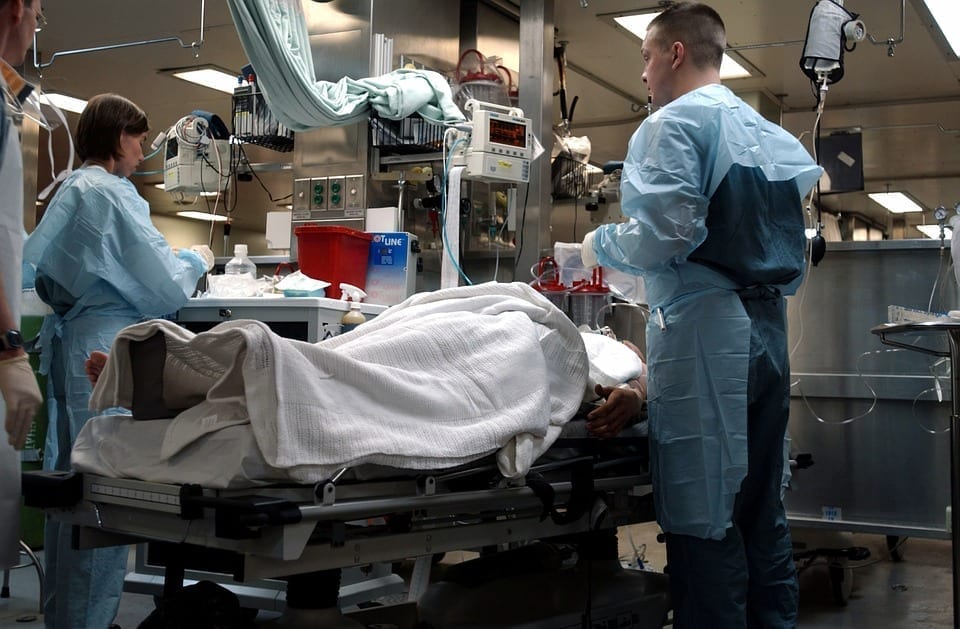Patients need to trust that the system is working for them, so hospitals must be held accountable when unnecessary triage errors occur.
Emergency rooms are often the first port of call for those seeking immediate medical care in Atlanta. One of the critical aspects of an emergency room’s operation is its triage system. This helps hospital staff determine who needs immediate medical attention and who can wait, ensuring that those with the most severe emergencies receive care as quickly as possible. But, like with any system, errors can and do occur.
Many people are unfamiliar with the triage system and what an error looks like when it occurs. However, most people know when they are not getting the treatment they need or their condition has worsened. Because triage is the first stage most patients encounter at the hospital, there is a good chance the error occurred there. Fortunately, hospitals can be held responsible for these errors in certain cases. If negligence played a part during the triage process, justice can be sought through a personal injury lawsuit.
How the Emergency Room Triage System Works
Triage is a process used in emergency departments around the world to sort and prioritize patients based on the severity of their condition. In Atlanta, the most commonly used triage system is the Simple Triage and Rapid Treatment (START) system. This system evaluates patients based on key emergency signs connected to the airway, breathing, and circulation. These signs might include things like respiratory rate, pulse rate, and blood pressure.
Additionally, Atlanta nurses typically perform this initial evaluation, making split-second decisions that dictate the treatment order.
During the triage process, patients are often divided into different categories based on the severity of their condition. The categories typically used in the START system are immediate, delayed, and minimal. Patients who fall into the immediate category require immediate medical attention and are given the highest priority. Those in the delayed category are stable but need treatment within a few hours. Patients in the minimal category have minor injuries and can usually wait to be seen by a doctor.
Of course, most Atlanta personal injury lawyers will tell you that this system is far from perfect. Errors often occur since evaluations must be performed quickly in the emergency room, typically by staff other than a doctor. Considering the challenges many Atlanta hospitals face today, the chances of more errors occurring in the future have only risen.
The Potential for Errors in Triage
In the bustling emergency rooms of Atlanta, there is a significant risk of errors occurring during the triage process. The fast-paced and high-pressure environment, coupled with the sheer number of patients, can make it challenging for healthcare workers to assess the severity of each case accurately. Such mistakes can range from misjudging the urgency of a patient’s condition to overlooking crucial symptoms of serious illnesses like heart attacks.

These errors can have dire consequences, such as delaying treatment for critically ill patients, potentially exacerbating their condition, or even leading to fatalities. For example, a patient experiencing a heart attack might display atypical symptoms that could be mistaken for a less severe condition. This could result in the patient being incorrectly categorized as non-urgent, delaying life-saving treatment.
However, hospitals and healthcare professionals are not exempt from being held responsible for their mistakes despite the intensity of their work environment. If a doctor or nurse makes an unreasonable mistake during triage, or worse, the hospital’s triage system itself is the cause of the error, they could be held liable in a medical malpractice lawsuit. Determining liability has become challenging in recent years as many Atlanta hospitals have faced overcrowding and closures.
How Atlanta’s Healthcare Crisis Contributes to Triage Errors
Atlanta’s healthcare crisis has reached a critical point, and the situation is dire. The closure of significant healthcare facilities, such as the Atlanta Medical Center in 2022, has compounded the issue of overcrowding in hospitals. As a result, emergency rooms are dangerously crowded, and the risk of triage errors has escalated.
With high patient volumes and the urgency to make swift decisions, healthcare staff are under immense pressure, and the situation is becoming increasingly challenging. The closure of major healthcare facilities has resulted in more patients flocking to fewer hospitals, leading to severe overcrowding. Given that the chances of error occurring are higher, knowing who to hold responsible becomes of critical importance.
Who to Sue When a Hospital Makes an Error in Triage
When a hospital makes an error in its triage assessment, it could potentially be found liable under the legal concept of negligence. This is because triage is a systemic process carried out by hospital employees, usually nurses, rather than individual doctors.
The critical question in such cases often revolves around whether a doctor-patient relationship has been established at the point of triage. In general, hospitals have a duty under various state and federal laws not to turn people away. For instance, the Emergency Medical Treatment and Labor Act (EMTALA) requires hospitals to provide a medical screening examination to any individual who comes to the emergency department and requests examination or treatment for a medical condition, regardless of their ability to pay.
If a hospital violates this duty through a negligent triage assessment, the patient (or their family) could potentially file a lawsuit seeking compensation for damages. These damages could include medical expenses, lost wages, pain and suffering, and, in tragic cases, wrongful death.
Further, the treating doctor or nurse could also be sued if they contributed to the injury. Vicarious liability refers to a situation where an employer, in this case, the hospital, is held responsible for the actions of its employees, the medical staff. Thus, if a nurse or other healthcare professional makes an error during triage, both they and the hospital could potentially be sued for that error.
You Deserve Compensation if a Triage Error Caused You Further Harm
The triage system is far from perfect. With few solutions in sight for Atlanta’s growing healthcare crisis, it seems likely that triage errors will continue to contribute to the worsening of patients’ conditions. However, patients deserve justice when hospitals and their employees fall short of their duty. Patients need to trust that the system is working for them, so hospitals must be held accountable when unnecessary triage errors occur.


Join the conversation!